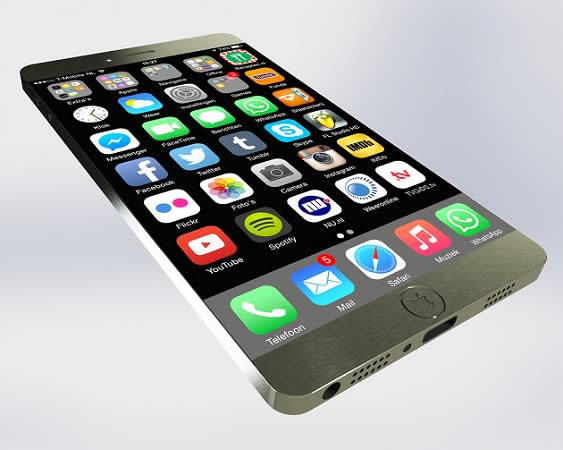Technology is Making us More Impatient. Here's What to Do

Before you get too giddy with happiness about the launch of the latest iPhone, take a minute to consider the effect an abundance of technology is having on us. More importantly, take a look at the effect an abundance of technology is having on the future generation.
In a recent study of 2,112 people, Microsoft found that we've progressively suffered from a decline in attention span. The study found that we now have an average attention span of eight seconds, compared to an attention span of 12 seconds in the year 2000. More shocking, perhaps, is the findings of a similar study by Jampp that found that our attention span decreases by 88 percent every year. If this persists, it won't take long before the human race is barely able to focus.
A decline in attention span is just as harmful as it sounds. Here are some facts from a compilation of statistics:
The average ecommerce site takes about 7.15 seconds to load (depending on browser used), yet a whopping 40 percent of internet users will abandon a website that takes longer than three seconds to load.
A single second delay in site load time will cost the average internet site a 7 percent loss in conversions.
Slow loading websites as a whole cost the U.S economy more than $500 billion annually.
Naturally, every new generation gets more impatient -- however, our impatience is increasing at the most accelera ted pace in history. In fact, a recent study found that today's infants are likely to have lower attention spans (again thanks to their parents and caregivers being distracted by technology when they should be giving them attention!).
In this article, I will address how to resist declining attention spans both personally and business-wise.
Here are some tips to help you rein in the distractions and be more focused:
Avoid Multitasking as Much as You Can: Quick question: how many browser tabs do you currently have open? How many mobile apps? How many devices are with you right now? The higher the number you mention in response to these questions, the lower your attention span is likely to be. Multitasking is the great threat to human attention span. Reduce multitasking and focus on one task at a time if possible, and observe the resulting increase in attention span.
Train Your Focus: Most people can't finish reading a basic article -- their attention is so divided that it's hard to focus. Improve your focus and attention span by consciously training yourself not to be distracted. Observe your actions and reactions when doing things; when you want to read an article, observe your reaction -- you're likely to want to scan and focus on something else. DON'T. Instead, carefully read every word. This will result in improved attention span. The same applies to other tasks; try to only maintain a few browser tabs at most -- focus on finalizing activities in one tab before opening another. Use this same principle in everything you do; be conscious of everything you do, and try not to be distracted.
Exercise Regularly: Exercise improves blood flow and circulation throughout the body, and we need it all the more in this age of omnipresent technology. Research links exercising to improved focus and attention span. Do regular exercises at various intervals in the day.
Here are some tips to help you survive declining attention spans as a business:
Create an App for Your Business: Available data shows that mobile apps are responsible for 56 percent of all internet traffic. That's a lot! If your startup doesn't have an app, it is safe to assume that you're losing half of your users.
Don't Ignore Mobile Users: Research shows that the number of mobile-only internet users now exceed the number of desktop-only internet users. More surprising, however, is the fact that 87 percent of millennials don't ever get separated from their mobile phones, and a whopping 77 percent of people reach for their mobile devices when nothing is occupying their attention. This shows that attention isn't completely vanishing, it is simply being directed elsewhere; your business would find it difficult to thrive if you ignore more users. Create an optimized mobile experience for your users; also, take advantage of new and innovative mobile payment solutions that do not create bottlenecks for your users..
Make Things Faster: Optimizing and making your website faster shouldn't be difficult -- services like Linode and Digital Ocean allow you to have your own server at minimal costs; there are also dozens of companies that take over the back-end and give your users a faster website. More importantly, focus on accelerating the checkout experience for your users -- delaying people's ability to interact with your website will cost you sales and revenue. Cut down on the checkout process by reducing the checkout steps and number of form fields and watch sales soar.
Create More Touchpoints: When people get more distracted, the solution is to reach out to them in more ways. Some sources estimate that we're exposed to as much as 5,000 ads every day; how do you stand out in such an environment? Create more touchpoints. This is psychologically-grounded -- known as the mere-exposure effect, or "the rule of 7" in marketing. Thanks to advancement in mobile technology, we have push notifications. Make use of that. Create an email list. Blog, too.
Conclusion
What do you think about declining attention spans? Will things get better or worse from here? Kindly share in the comments section below.
